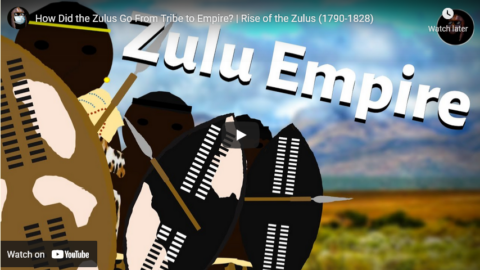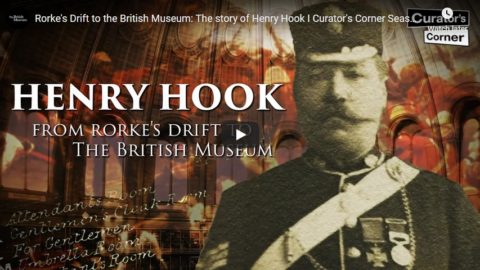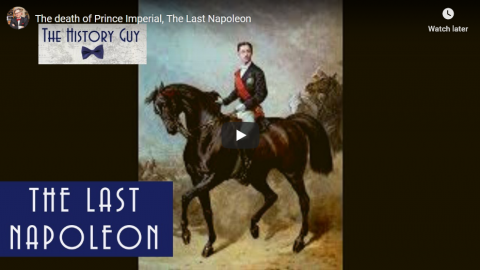… one underappreciated fact is that [South Africa] was handed over to Leninists. Before reading this book, I think I had in the back of my mind some vague sense, probably absorbed from racist Twitter accounts, that Nelson Mandela had some sort of communist affiliation, but the reality is so much worse than I’d imagined and very curiously unpublicized. Mandela’s African National Congress was a straightforwardly revolutionary communist party during their decades of exile, with leaders constantly flying to the Soviet Union and to East Germany to be wined and dined, and to get lessons on governance from the Stasi.
Those lessons were enthusiastically put into practice — the ANC set up a network of death camps in Angola at which traitors and enemies and just plain inconvenient people were worked or tortured to death. They also founded a paramilitary terrorist army called uMkhonto we Sizwe (MK) that waged a brutal dirty war, supposedly against the apartheid government but actually against anybody they didn’t like. The vast majority of the victims of MK were black people who happened not to support the ANC, especially Zulus in their tribal homeland in what’s now KwaZulu-Natal province, who were subjected to regular massacres in the 80s and early 90s.
The ANC and the MK had a special hatred for the Zulus. In part, because the ANC’s leadership was disproportionately Xhosa, and their ancestors had suffered during King Shaka’s wars of expansion in the 19th century. But this ancient ethnic grudge wasn’t the fundamental problem, and indeed it was later papered over. The real problem was that the Zulus dared to engage in political organization outside the ANC and its subsidiary, the South African Communist Party (SACP). The preferred Zulu political vehicle was the Inkatha Freedom Party (IFP), which was associated with the Zulu monarchy and the traditional amakhosi (chieftains). This made it an independent base of power within black South Africa, and a competing claim on the loyalty of Zulu citizens. The ANC considered this situation unacceptable.
Like many avowedly communist organizations, the ANC was allergic to political competition of any sort. Internally, the party practiced an especially harsh form of democratic centralism — most policy decisions were made by a tiny and incestuous central committee, and members were expected to be totally submissive in the face of party discipline. This extended even to the point of party permission being necessary for senior members to marry. Externally, the party had an entitled attitude common to successful revolutionary organizations from North Korea to Albania — they were the incarnation of the aspirations of the South African people and the vanguard of their brilliant future, so all other political organizations were ipso facto illegitimate. Can you guess what happened when these people were handed power?
John Psmith, “REVIEW: South Africa’s Brave New World, by R.W. Johnson”, Mr. and Mrs. Psmith’s Bookshelf, 2023-03-20.
February 27, 2025
QotD: The ANC, the Inkatha Freedom Party, and the Zulus during Apartheid
February 12, 2025
QotD: Jacob Zuma – South Africa’s answer to Donald Trump
[Thabo] Mbeki’s presidency ended in disaster and humiliation, but it paved the way for one of the most colorful politicians alive today: Jacob Zuma. The most important thing for Americans to understand is that Zuma is basically a left-wing and South African version of Donald Trump. He is colorful, bombastic, and over-the-top. He has a tendency to break into song at political rallies and church services. He says outrageous and inappropriate things. He is beloved by the far left and grudgingly admired by the far right and fanatically hated by all the bien-pensants in the center. He was viciously persecuted by the South African deep state, and his accession to the presidency caused a bitter #NeverZuma faction to break off the ANC and start another party (incredibly this party is called “COPE”). Finally, he is an out and proud polygamist and brags openly about his corruption, and people love this because they know every politician is doing it, he’s just honest about it.
The ANC bosses did not like Zuma. For decades the ANC had been dominated by elite, western-educated, communist Xhosas, but Zuma was none of those things. Zuma came from nothing — his mother was a janitor and his father died when he was 3. Zuma was so illiterate and uncultured that Mbeki tapped him to be deputy president on the theory that it would keep his own position secure, since nobody would ever let Zuma be president (yeah this backfired spectacularly). Most shocking of all, Zuma was a Zulu. He danced in a loincloth and leopard skin with the Zulu king at the Shaka festival. The idea of this savage wildman becoming president was just beyond the pale. Something had to be done to stop him.
The last chance to stop Zuma was a credible-seeming rape accusation from a family friend. The ANC pounced on this, and initiated a high-profile criminal trial. This incensed Zuma’s supporters, who insisted that the prosecution was politically motivated (given that over the past decade the ANC had all but stopped prosecuting rape cases in society more broadly, they may have had a point). The trial was a total debacle. Countless thousands of young activists showed up outside the courtroom wearing t-shirts with slogans like “One hundred percent Zuluboy”, “Burn the bitch”, and “Zuma was raped”. When summoned to the witness stand, the president-to-be performed war dances and led the crowds in song. The prosecution collapsed after the accuser’s story was found to be inconsistent on numerous points, and a triumphant Zuma rode the backlash all the way to the presidency.
There’s another way Jacob Zuma is like Donald Trump: the corrupt and failed ruling classes of both South Africa and the United States find it convenient to blame these men for everything that has gone wrong in their countries ever since. In fact in Zuma’s case, history has begun to be rewritten so that he can be blamed for things that happened before he became president. Many of the South Africans I’ve spoken to will confidently assert that some problem (say, the power outages) is all due to Zuma. When I gently point out that those outages began in 1998 and innocently ask who was president then, they shut down entirely. Zuma is the scapegoat for the failings of an entire country, and making him the sole source of all evil plays the important social role of allowing everybody to pretend that things were great until he showed up (things were not great). In a similar vein, I will not be shocked if decades from now, Donald Trump is blamed for starting the fentanyl epidemic.
John Psmith, “REVIEW: South Africa’s Brave New World, by R.W. Johnson”, Mr. and Mrs. Psmith’s Bookshelf, 2023-03-20.
July 13, 2024
The real story of Henry Hook, VC – Zulu
The History Chap
Published Nov 23, 2023Henry Hook, VC, 1850-1905. Zulu — the Battle of Rorke’s Drift.
Henry Hook was one of 11 defenders at the mission station at Rorke’s Drift (battle of Rorke’s Drift, Anglo-Zulu War 1879) who were awarded the Victoria Cross. Controversially, his character was misrepresented in the 1963 film Zulu. His character, played by James Booth (1927-2005), was depicted as an insubordinate barrack-room lawyer, a drunk and a malingerer. This was far from the truth.
Hook was actually a model soldier, who was teetotal, and who would serve as a regular and volunteer for over 40 years. His family were upset by the film, although contrary to popular stories, there is no evidence that Henry Hook’s daughters walked out of the [movie’s] premiere.
Nevertheless, in this video I aim to share his real story. Not just of his service in the army (and at Rorke’s Drift) but of a humble man from Gloucestershire, who returned home to find his wife had run off with another man, who found love for a second time and who worked in the British Museum.
Where is Henry Hook buried? Henry Hook’s grave can be found at St. Andrew’s church in the hamlet of Churcham, Gloucestershire. it is about five miles west of Gloucester.
0:00 Introduction
1:26 Early Life
3:10 Rorke’s Drift
3:56 Zulu
5:00 Defending The Hospital
7:45 Assegai wound
9:47 Making Tea
10:23 Victoria Cross
11:07 After Rorke’s Drift
13:11 Failing Health
15:10 The History Chap
(more…)
October 20, 2023
Zulu Kingdom’s Last Stand – The Anglo-Zulu War 1879
Real Time History
Published 18 Oct 2023The Anglo-Zulu War in 1879 is one of the most well known colonial wars of the British Empire. And while the British ultimately won and annexed the Zulu Kingdom, at the Battle of Isandlwana they suffered one of their worst defeats.
(more…)
June 27, 2023
QotD: Nelson Mandela, Thabo Mbeki, and the ANC
Needless to say, this is not the story that Western media was telling me about South Africa in the late 90s. Rather they were focused on the dashing and heroic figure of Nelson Mandela. Speaking of which, where exactly was Mandela while all this was going on? Flying around Europe and America getting fêted by celebrities, mostly, and getting sidelined by his much nastier but more effective comrades, including his wife (soon to be ex-wife) Winnie. Mandela may have been president, but he barely had control over his own cabinet, let alone the country. As one of his comrades from the Robben Island prison put it: “there is something very simple and childlike about him. His moral authority, the strength of his principles and his generosity of spirit are all derived from that simplicity. But he will be easily manipulated by those who are quicker, more subtle, and more sophisticated.”
The impression Johnson gives is very much that of a man in way over his head, and when Mandela did try to assert himself, the results were usually buffoonish:
He declared that the solution to continuing violence in KwaZulu-Natal was for everyone to join the ANC … In 1995 he told a May Day rally that if the IFP continued to resist the ANC he would cut off all funding to KwaZulu-Natal, the most populous province. This was a completely unconstitutional threat which had to be quickly retracted. Similarly, when he dismissed Winnie from government he failed to read the constitution and thus had to reappoint her and later dismiss her again. Visiting Tanzania, he announced that: “We are going to sideline and even crush all dissident forces in our country.”
Mandela also made a lot of genuinely very big-hearted speeches pitching a “rainbow nation” vision of South Africa and begging whites not to flee the country, but every time the interests of justice conflicted with those of the ANC, he showed himself to be a party man first and foremost. The most revolting examples of this are two incidents in which independent prosecutors were investigating ANC atrocities (in one case a massacre of dozens of protestors, the other case an incident where some Zulus were kept in a cage inside a local ANC party HQ and tortured for months), and Mandela staked the full power of his moral authority on blocking the inquiries. In the case of the massacre, Mandela went so far as to declare that he had ordered the gunmen to shoot, which everybody knew to be a lie, but which meant that any attempt to pursue the coverup would mean taking down Mandela too. Nobody had the stomach to face that prospect, so the prosecutors dropped the case.
If Mandela was a figurehead, then who was really in charge? The answer is the main character of this book: Thabo Mbeki, the deputy president. Mbeki is a villain of almost Shakespearean proportions — paranoid, controlling, obsessive, bad with crowds yet charming in person. Even before Mandela was out of prison, he was already angling for the number two spot, shaping the narrative, quietly interposing himself between the charismatic Nobel peace prize winner and the true levers of power.
This was bad news for South Africa, because in contrast to Mandela’s “rainbow nation” optimism, Mbeki was a committed black nationalist who immediately set about purging whites from the government and looting white wealth, with little regard for whether this might kill the goose that lays the golden eggs. Johnson ascribes a psychological motivation to all this, asserting that Mbeki suffered from a crushing inferiority complex vis-a-vis the white elites, and quoting several truly bizarre and unhinged public speeches in support of his diagnosis. A more prosaic explanation would just be that like many tyrants in the making, Mbeki sought to create and elevate “new men”, men who owed him everything and whose loyalty could thereby be assured.
Whatever the case, Mbeki quickly began to insist that South Africa’s military, corporations, and government agencies bring their racial proportions into exact alignment with the demographic breakdown of the country as a whole. But as Johnson points out, this kind of affirmative action has very different effects in a country like South Africa where 75% of the population is eligible than it does in a country like the United States where only 13% of the population gets a boost. Crudely, an organization can cope with a small percentage of its staff being underqualified, or even dead weight. Sinecures are found for these people, roles where they look important but can’t do too much harm. The overall drag on efficiency is manageable, especially if every other company is working under the same constraints.
John Psmith, “REVIEW: South Africa’s Brave New World, by R.W. Johnson”, Mr. and Mrs. Psmith’s Bookshelf, 2023-03-20.
March 22, 2023
What happened to Colour Sergeant Frank Bourne after Rorke’s Drift?
The History Chap
Published 20 Jul 2022Colour Sergeant Frank Bourne was the senior NCO at the Battle of Rorke’s Drift during the Zulu War of 1879. Superbly played by actor Nigel Green in the 1964 film Zulu, many have wondered why he was never awarded a Victoria Cross when 11 others were. This is the story of what happened to Colour Sergeant Frank Bourne after Rorke’s Drift.
He was actually awarded Britain’s second highest military medal (at the time), the Distinguished Conduct Medal, and ultimately rose from the ranks to become an officer. His military career continued all the way to the First World War, where he was promoted to the rank of Lt. Colonel. Frank Bourne, the last surviving defender of Rorke’s Drift, died in 1945, one day after the Germans surrendered.
(more…)
March 21, 2021
How Did the Zulus Go From Tribe to Empire? | Rise of the Zulus (1790-1828)
History With Hilbert
Published 28 Mar 2020Perhaps the most famous of Africa’s tribes, the Zulus rose to prominence under their King Shaka at the start of the 19th Century on the Eastern seaboard of what’s now South Africa. In the years following Shaka’s death his successors would have encounters with the Boer Voortrekkers and more famously, with the British culminating in the Anglo-Zulu War (1879) where they managed to decisively defeat them at the Battle of Isandlwana before themselves suffering defeat at the now infamous Battle of Rorke’s Drift. But in this video I’m not going to be talking about the much more well known story of the British Invasion of Zululand in the later 19th Century and the demise of the Zulu Empire, but rather about its origin and how it came about. In the 18th Century the Zulu as a people had only just become a separate entity, and certainly were not one of the major players on the scene before the time of Shaka. A series of factors played a role in their rise to power around the turn of the 19th Century, most notably the actions of Shaka himself as well as a shift in the way in which warfare was carried about by the tribes of the region and their interactions with European trading networks.
Go Fund My Windmills (Patreon):
https://www.patreon.com/HistorywithHi…Join in the Banter on Twitter:
https://twitter.com/HistorywHilbertIndulge in some Instagram..? (the alliteration needs to stop):
https://www.instagram.com/historywith…Music Used:
“Eine Kleine Nachtmusik” – Wolfgang Amadeus Mozart
“Expeditionary” – Kevin MacLeod
“Sunday Dub” – Kevin MacLeod (incompetech.com)
Licensed under Creative Commons: By Attribution 3.0 LicenseSend me an email if you’d be interested in doing a collaboration! historywithhilbert@gmail.com
#Zulu #SouthAfrica #History
February 20, 2021
History Summarized: South Africa
Overly Sarcastic Productions
Published 19 Feb 2021In the past few centuries, few corners of the African Continent were quite as busy as the south. It’s a winding river from the first migrations and waves of colonists in the Cape Colonies to the Rainbow Nation we know today, so let’s dive in and see how it all played out!
SOURCES & Further Reading for Black History Month:
— The African Experience From ‘Lucy’ to Mandela From the Great Courses Plus, lectures 15-18 “South Africa: The Dutch Cape Colony & The Zulu Kingdom & Frontier and Unification & Diamonds and Gold”, 26 “Segregation and Apartheid in South Africa”, and 32 “The South African Miracle”— Born A Crime by Trevor Noah: https://bookshop.org/books/born-a-cri…
— Home Team History is a YouTube channel covering all corners of the African continent. They have several videos about Southern Africa, such as “A History of Stone Architecture in Southern Africa” (https://youtu.be/0U4Wu3CmL0U) and “Southern Africa: The Birthplace of Iron Mining” (https://www.youtube.com/watch?v=b9HO0…), and “A history of the Xhosa People” (https://youtu.be/axajPiZnDqo)
— Lastly, looking to modern times, it’s important to recognize how the COVID crisis has exacerbated massive preexisting disparities between healthcare for Black and minority communities and that of white Americans. It’s not enough to just acknowledge history, we all have a responsibility to understand modern problems and work on solutions. Read more: (https://www.scientificamerican.com/ar…) and please consider Donating to support the NAACP’s COVID relief programs: (https://naacp.org/coronavirus/coronav…)With special thanks to the members of our discord community who helped polish my script: Holben, Klieg, Good Hunter, and Sticc (who has a History of Africa podcast: https://www.listennotes.com/podcasts/…)
This topic was voted on by our community of Patrons! If you’d like to get extra rewards and play a role in the content we make, please consider supporting our channel at https://www.Patreon.com/OSP
Our content is intended for teenage audiences and up.
PODCAST: https://overlysarcasticpodcast.transi…
DISCORD: https://discord.gg/osp
MERCH LINKS: http://rdbl.co/osp
OUR WEBSITE: https://www.OverlySarcasticProductions.com
Find us on Twitter https://www.Twitter.com/OSPYouTube
Find us on Reddit https://www.Reddit.com/r/OSP/
December 5, 2020
Rorke’s Drift to the British Museum: The story of Henry Hook I Curator’s Corner Season 4 episode 5
The British Museum
Published 12 Nov 2018Henry Flynn recounts the story of Alfred Henry Hook VC, a private in B Company of the 2nd Battalion, 24th Regiment of Foot who served at the battle of Rorke’s Drift before becoming an employee of the British Museum.
From the comments:
shoutinghorse
1 year ago
When the movie Zulu was premiered in 1964 in London descendants of some of the characters were invited to attend including Henry Hook’s two daughters, (5:53) they were elderly ladies by then and were so horrified at the portrayal of their father as a malingering drunken thief that they walked out in disgust. In real life Hook was an honest soldier and a teetotaller. The producers of the film later issued an a apology to the Hook family.
May 3, 2020
QotD: Tragic cultural misunderstandings
… the problem is how cultures “read” things and people can be completely different/opposite. Part of our issue with Islamic culture is just that: cultural. They’d never get in the pissing contest they are pushing, if they could read us accurately. And arguably our liberals would never be pushing for peace and appeasement if they could read THEM accurately.
It’s one of those cultural traps which I have read about and which are tragic.
I think I’ve spoken before of the tragic encounter between Zulu and Boers in South Africa. Zulus were doing what they did that had won them Africa (they came from central Africa shortly before the whites arrived): Commit incredibly scary atrocities so the enemy runs/avoids combat/submits. The whites were in their head just another tribe. They could not understand the idea of a “tribe” that was starting to span the globe and which would self-identify as “tribe” in the face of a savage. So their savagery made the Europeans MORE determined to wipe them out.
We’re seeing something like that, again. Islamic CULTURES are big on bragging, exaggeration of force and intimidation of the enemy. This is functional in a desert where there’s always a lot of low-level “war.” Some atrocities, scare “the enemy” and you keep your patch, and you go on. They have a fine tuned ear for this. When the other tribe isn’t committing atrocities against YOU and particularly when they’re being appeasing/accommodating, you have them over a barrel. If you strike with showy force you can take their stuff and enslave them. NOTE most of the attacks are designed to be showy.
TWO things they don’t get: Our elites are appeasing because the elites think they’re SO powerful they can’t be touched and are oikophobes who hate their own people. AND our PEOPLE is pissed, really pissed.
You know the old joke? There are no Muslims in Star Trek because it’s set in the future.
This is unfortunately the likely outcome of the cultures meeting. At some point (already happening) the elites will have to fight or be replaced. And when we go to war, our power is incalculable compared to them. They think we exaggerate our strength, while, culturally, we underplay it. They don’t understand we’re holding back.
The result will be a horrific destruction of guilty and innocent alike and even people like me who look Arab/Mediterranean in a bad light will be at risk.
And they will be the victims of genocide.
Sarah Hoyt, “Cross-Culture”, According to Hoyt, 2017-03-23.
March 7, 2020
The death of Prince Imperial, The Last Napoleon
The History Guy: History Deserves to Be Remembered
Published 14 Jul 2017The History Guy remembers when the hopes to restore the Second French Empire die in South Africa with Prince Imperial, the last Napoleon. It is history that deserves to be remembered.
The History Guy uses images that are in the Public Domain. As photographs of actual events are often not available, I will sometimes use photographs of similar events or objects for illustration.
Patreon: https://www.patreon.com/TheHistoryGuy
The History Guy: Five Minutes of History is the place to find short snippets of forgotten history from five to fifteen minutes long. If you like history too, this is the channel for you.
The episode is intended for educational purposes. All events are presented in historical context.
#worldhistory #thehistoryguy #militaryhistory
January 9, 2020
Martini-Henry I.C.1 Carbine
Forgotten Weapons
Published 28 Dec 2014http://www.forgottenweapons.com
Formally adopted in 1877, the I.C.1 Martini-Henry was formally designated the “Arms Interchangeable, Carbine Breech loading Rifled, with clearing rod Martini-Henry Mk1”. The word “interchangeable” refers to its use for both the artillery and cavalry services, instead of needing a separate design for each, as was typical of military forces at the time. It was chambered for the massive .577/450 cartridge, with a 21.3 inch barrel and an overall weight of 7.5 pounds.
I am shooting it today with 1950s Kynoch ammunition, a batch of which came into the US several years ago and can still be found without much trouble. However, it gave me significant hangfires and split cases, and I would not recommend it.
Theme music by Dylan Benson – http://dbproductioncompany.webs.com
October 25, 2019
“Rorke’s Drift” – The Anglo-Zulu War – Sabaton History 038 [Official]
Sabaton History
Published 24 Oct 2019The Battle of Rorke’s Drift was the last stand for the British defenders, facing thousands of Zulu fighters with only a few hundred of their own.
Support Sabaton History on Patreon: https://www.patreon.com/sabatonhistory
Listen to The Last Stand where “Rorke’s Drift” is featured):
CD: http://bit.ly/TheLastStandStore
Spotify: http://bit.ly/TheLastStandSpotify
Apple Music: http://bit.ly/TheLastStandItunes
iTunes: http://bit.ly/TheLastStandItunes
Amazon: http://bit.ly/TheLastStandAmz
Google Play: http://bit.ly/TheLastStandGooglePlayWatch the official lyric video of “Rorke’s Drift” here: https://www.youtube.com/watch?v=i9Bup…
Hosted by: Indy Neidell
Written by: Markus Linke and Indy Neidell
Directed by: Astrid Deinhard and Wieke Kapteijns
Produced by: Pär Sundström, Astrid Deinhard and Spartacus Olsson
Creative Producer: Joram Appel
Executive Producers: Pär Sundström, Joakim Broden, Tomas Sunmo, Indy Neidell, Astrid Deinhard, and Spartacus Olsson
Post-Production Director: Wieke Kapteijns
Maps by: Eastory
Edited by: Iryna Dulka
Sound Editing by: Marek KaminskiEastory YouTube Channel: https://www.youtube.com/channel/UCEly…
Archive by: Reuters/Screenocean https://www.screenocean.com
Music by Sabaton.Sources:
– The National Archives UK
– A group of Zulu men in war dress, a photograph by Robert Harris. Credit: Wellcome Collection.
– Episodes in the Zulu wars, Credit: Wellcome Collection
– Field ambience by dobroide from freesound.orgAn OnLion Entertainment GmbH and Raging Beaver Publishing AB co-Production.
© Raging Beaver Publishing AB, 2019 – all rights reserved.
From the comments:
Sabaton History
2 days ago (edited)
One nation’s heroic history is another’s national tragedy. In academia, the horrors of imperialism get more and more attention each year. In this episode, besides covering the events that unfolded during the Battle of Rorke’s Drift, we try to capture the ambiguous nature of colonial history. Yes, the last stand of the British soldiers against an overwhelming Zulu force is impressive, but whether or not it should be celebrated is open for debate. We would like to have this conversation in the comments down below, but keep it civil. Any racist, apologist or revisionist comments can lead to a ban.
Cheers, The Sabaton History Team.
May 13, 2019
“[T]he most famous Zulu word on the planet was invented by a New York socialist in 1951”
I had no idea there was so much back-story to the song “The Lion Sleeps Tonight” aka “Wimoweh” aka “Mbube”, which had managed to be a hit for groups as diverse as Tight Fit, Robert John, the Tokens, the Weavers, Ilonka David-Biluska, Henri Salvador, and others:
Those words about “the jungle, the mighty jungle” sit so perfectly and indivisibly on those notes they sound like they’ve belonged to each other for all time. We know the lyric is George Weiss’, but where did the tune come from?
Well, it’s obvious, isn’t it? It was a “Zulu chant” — ie, “traditional – ie, “anonymous” — ie, out of copyright. Which meant someone else could put it back in copyright. In the Fifties and early Sixties, public demand for “authentic” “traditional” music created a huge windfall for savvy Tin Pan Alleymen. You take some half-forgotten folk dirge, tweak it here and there, and then copyright your version as a full-blown composition in its own right. Everyone was doing it: in the Fifties, “Frankie And Johnny”, “Auld Lang Syne”, “Greensleeves” and a bunch of other things that had been around forever were being copyrighted as brand new songs. Huge and Luge had done it with “Can’t Help Falling In Love”, né “Plaisir d’Amour“. So the first thing they wondered, when the Tokens showed up and began doing their Zulu impressions, was where did this “Wimoweh” thing come from anyway? They looked at the song credits: “Paul Campbell” and “Albert Stanton”.
Bingo! There was no such “Paul” and no such “Albert”. Mr “Campbell” was the name Pete Seeger and the Weavers would put on the sheet music when they’d recorded a folk tune and decided they’d like to cut themselves a piece of the songwriting action. And Mr “Stanton” was the name Al Brackman at the Richmond publishing house put on the music when he wanted to do the same for his bank account. Messrs “Campbell” and “Stanton” thus became successful mid-20th century songwriters who apparently hadn’t written anything since the mid-19th century. So the minute Huge and Luge saw those names on “Wimoweh” they knew it was a plum just ripe for a second picking. If it ever came to court, Huge, Luge and George Weiss’ defense would be yes, they’d plagiarized it not from Campbell & Stanton but from the same 19th century Zulu natives Campbell & Stanton had plagiarized it from. And, because Pete Seeger, the Weavers and the Richmond organization well understood that, they never did bring it to court. So there are two entirely separate mid-20th century pop songs by two entirely separate writing teams, one called “The Lion Sleeps Tonight”, the other called “Wimoweh“.
[…]
In South Africa, it was huge. “Mbube” became not just the name of a hit record but of an entire vocal style — a high-voiced lead over four-part bass-heavy harmony. That, in turn, evolved into “isicathamiya“, a smoother vocal style that descended to Ladysmith Black Mambazo and others, taking its cue from the injunction “Cothoza, bafana” — or “tread carefully, boys”. That’s to say, Zulu stomping is fine in the bush, but when you’re singing in dancehalls and restaurants in you’ve got to be a little more choreographically restrained, if only for the sake of the floorboards.
“Tread carefully, boys” is good advice for anyone in the music business. A few years after Solomon Linda and the Evening Birds made their hit record, it came to the notice of Pete Seeger, on the prowl for yet more “authentic” “traditional” “vernacular” “folk music” for the Weavers to make a killing with. He misheard “Mbube” and transcribed it as “Wimoweh“. That’s a great insight into the “authenticity” of the folk boom: the most famous Zulu word on the planet was invented by a New York socialist in 1951
March 9, 2019
Anglo-Zulu War | 3 Minute History
Jabzy
Published on 30 Dec 2014Anglo-Zulu War









